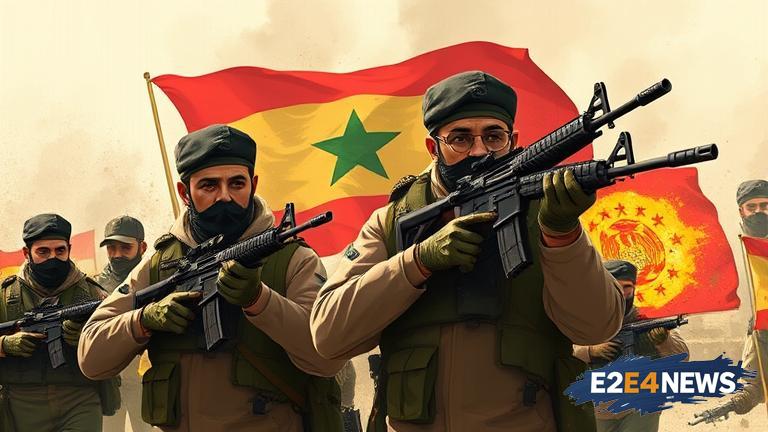The Lebanese-based militant group Hezbollah has refused to disarm, despite mounting pressure from the international community. This move has sparked concerns among world leaders, who fear that the group’s military presence could escalate tensions in the already volatile Middle East region. Hezbollah, which is backed by Iran, has been a major player in the Syrian civil war and has also been involved in various other conflicts in the region. The group’s refusal to disarm has been met with criticism from the United States, Israel, and other Western countries, who view Hezbollah as a terrorist organization. The US has imposed sanctions on Hezbollah and has called on the group to disarm and cease its military activities. However, Hezbollah has shown no signs of backing down, with its leader, Hassan Nasrallah, vowing to continue the group’s military campaign. The situation has been further complicated by the involvement of other regional players, including Iran and Saudi Arabia, who are backing opposing sides in the conflict. The United Nations has called for calm and restraint, but so far, there has been little progress towards a peaceful resolution. The conflict has also had a significant impact on the humanitarian situation in the region, with thousands of civilians caught in the crossfire. The international community has called for an end to the violence and for all parties to engage in peaceful negotiations. However, with Hezbollah’s refusal to disarm, it remains to be seen whether a peaceful resolution can be achieved. The group’s military presence has also raised concerns about the potential for a wider conflict in the region. Israel has warned that it will not tolerate a permanent Hezbollah presence on its border, and there have been reports of increased military activity in the area. The US has also been involved in the conflict, with American troops deployed in the region to support the fight against ISIS. However, the US has also been critical of Hezbollah’s activities, and has called on the group to disarm. The situation remains highly volatile, with the potential for a wider conflict still very real. The international community is calling for calm and restraint, but it remains to be seen whether this will be enough to prevent further violence. In the meantime, the humanitarian situation in the region continues to deteriorate, with thousands of civilians caught in the crossfire. The conflict has also had a significant impact on the regional economy, with trade and commerce disrupted by the violence. The international community is urging all parties to engage in peaceful negotiations, but so far, there has been little progress towards a resolution. The situation remains highly complex, with multiple regional players involved and a range of competing interests at stake. Despite the challenges, the international community remains committed to finding a peaceful resolution to the conflict. However, with Hezbollah’s refusal to disarm, it remains to be seen whether this will be possible. The group’s military presence continues to escalate tensions in the region, and there are fears that the conflict could spread to other parts of the Middle East. The US, Israel, and other Western countries are calling for Hezbollah to disarm, but the group shows no signs of backing down. The situation is highly volatile, and the potential for a wider conflict remains very real. The international community is calling for calm and restraint, but it remains to be seen whether this will be enough to prevent further violence.
